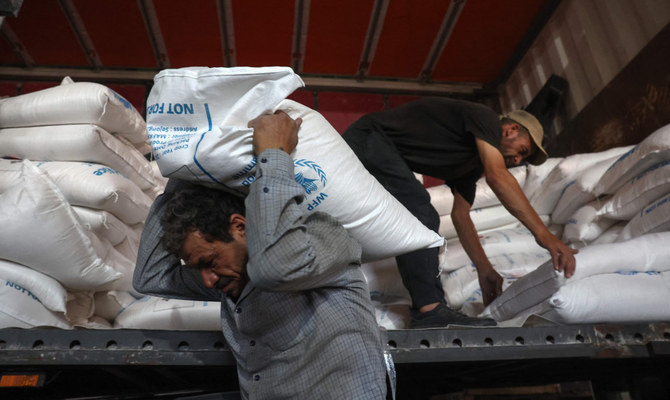BATABO, Syria: Syrians in the country’s last rebel enclave expressed alarm on Wednesday after the UN Security Council failed to renew an aid delivery mechanism to the area, imperilling critical humanitarian assistance.
The UN largely delivers relief to northwest Syria via neighboring Turkiye through the Bab Al-Hawa crossing, but the deal to do so expired on Monday.
Russia on Tuesday vetoed a nine-month extension of the agreement, and then failed to muster enough votes to adopt just a six-month extension, during a vote at UN headquarters in New York.
From a bleak displacement camp near the town of Batabo in the Idlib bastion, Ghaith Al-Shaar, 43, expressed dismay at the political bickering and the crushing impact any interruption to aid supplies could have on his family.
Without the UN assistance, “it’s impossible for anybody to cope, particularly if they have children,” said the father of five, who was displaced from Damascus’s Eastern Ghouta area five years ago.
“Even though it was just simple assistance, it helps support us,” Shaar said. Syria’s conflict has killed more than 500,000 people, displaced millions and battered the country’s infrastructure and industry.
The 15 Security Council members had been trying for days to find a compromise to extend the cross-border aid deal, which since 2014 has allowed for food, water and medicine to be trucked to northwestern Syria without the authorization of Damascus.
Damascus regularly denounces the aid deliveries as a violation of its sovereignty, and Russia has been chipping away at the deal for years.
Moscow is a major ally of Damascus, and its intervention in Syria since 2015 helped to turn the tide in the regime’s favor.
The UN says more than 4 million people are in need in northwest Syria, while it and its partners have been reaching 2.7 million people a month with aid there.

























